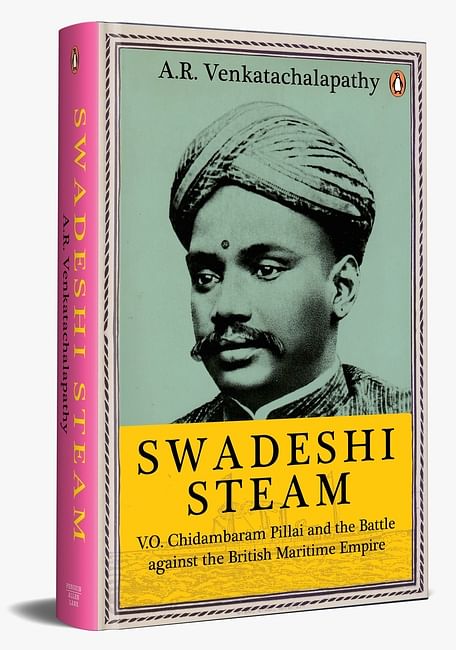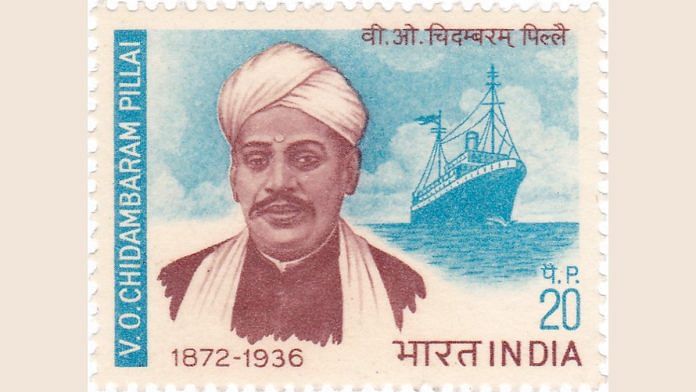The protest violence of 13 March marked the high point of the Swadeshi movement in south India. SSNCo lay at its foundation. In launching the company, VOC had challenged the British Empire.
The government was also under pressure from the European mercantile community in India. As the movement was hitting them where it hurt the most—their purse— European business interests expressed great dissatisfaction with the government’s ‘ineffective response’. A long-standing president of the Madras Chamber of Commerce (and director of Parry’s), A.J. Yorke excoriated the ‘safety-valve’ principle regarding the freedom of expression as unsuitable for India. Had the many small garrisons dotting the presidency not been removed, he wrote in chilling words, ‘Cocanada, Tuticorin and Tinnevelly would not have forgotten themselves’.
While the colonial state blamed VOC’s speeches and the propaganda for SSNCo for the violence, Indian nationalist opinion had no doubt that it was the result of the government’s efforts to crush the shipping company. If The Hindu, from Madras said ‘the Swadeshi company had nothing to do with the strike or riot’,65 Aurobindo wrote from Calcutta in the Bande Mataram: citing the daily Madras Standard, he traced its origins to ‘the establishment of the Swadeshi Steam Navigation Company and the attempt to throw difficulties in the way of its success’. In Aurobindo’s view,
[t]he struggle generated an acute feeling on both sides and when commercial war extended itself and people took sides with Indian labour against British capital in the affairs of the Coral Mills, the patience of the English officials gave way and they rushed to the help of their mercantile caste-fellows, misusing the sacred seal of justice and the strong arm of power as instruments to maintain their trade supremacy.
The ‘unjust and unwarrantable action’ was the cause of the violence and bloodshed.
Writing from far-off London, the organ of the Indian National Congress, India, echoed this view:
Tuticorin . . . is the stronghold of the Swadeshi movement in Southern India, and ever since the starting of the Swadeshi Steam Navigation Company at Tuticorin, to compete with the British Indian Steam Navigation Company, which had hitherto enjoyed the monopoly of traffic between Tuticorin and Colombo, there has been trouble of some sort or other between the people on the one side and the representatives of European commerce and the authorities on the other.
The rivalry between SSNCo and BI was common knowledge. ‘[T]he prosperity of the Swadeshi Steam Navigation Co. has materially affected the commercial interest of the B.I.S.N. Co. cannot be denied.’ Unsurprisingly therefore BI had ‘a grievance against the S.S.N.Co’. Given that ‘Mr V.O. Chidambaram Pillai is the life and soul of the Swadeshi Steam Navigation Co’, ‘[a]t the present juncture, to strike a blow at him virtually means a deathblow to the Swadeshi Steam Navigation Co’. And, this was precisely what the government did. ‘It has been made very evident that where Anglo-Indian and Indian commercial enterprise come in conflict, the bureaucrat’s boasted impartiality cuts a very poor figure. And if the bureaucrat ceases to be impartial, what business has he to be in India at all?’
VOC put the onus on BI when the government prosecuted him for the violence: ‘This case has been cooked up against me by the executive officers of Tuticorin and Tinnevelly at the instigation of some of the European merchants of Tuticorin who suffered a heavy loss of their business and earnings on account of my work for the Swadeshi Steam Navigation Company and some other Swadeshi enterprises at Tuticorin.’ Similarly, in her petition to the King-Emperor pleading for clemency on VOC’s behalf, his wife Meenakshi argued that ‘the case had its origin in the rivalry between the two steam navigation companies in Tuticorin’.
Ironically, the Government of India, on receipt of the first telegraphic reports of the protests, too conceded that it originated in the shipping rivalry. If the secretary of state for India, Lord Morley wondered from London if the protests were against ‘specific industrial grievances or was political’, the home secretary to the Government of India, Herbert H. Risley, too wanted to know ‘the part played in the disturbances by the Swadeshi Steam Navigation Company which has for some time past been trying to cut out the British Indian Steam Navigation Company in the traffic between Tuticorin and Colombo’. It was later that it toed the line of the Madras government and understood the political significance of VOC’s shipping venture.
 This excerpt from Swadeshi Steam: V.O. Chidambaram Pillai and the Battle against the British Maritime Empire by AR Venkatachalapathy has been published with permission from Penguin Random House India.
This excerpt from Swadeshi Steam: V.O. Chidambaram Pillai and the Battle against the British Maritime Empire by AR Venkatachalapathy has been published with permission from Penguin Random House India.



